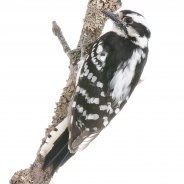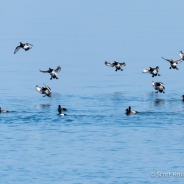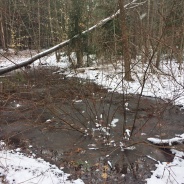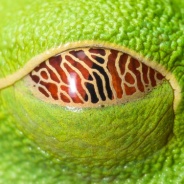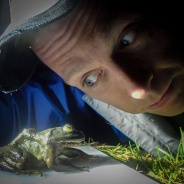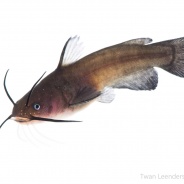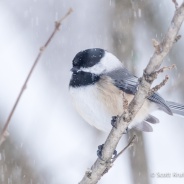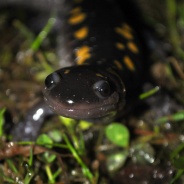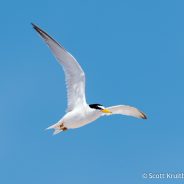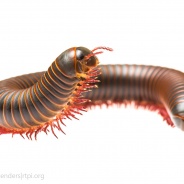I love this time of year. After the exuberance of summer and the vibrant colors of fall, I’m thankful for the days growing shorter. The nights longer. Temperatures falling. Silhouettes of bare branches against a leaden sky promising snow. All of nature winding down. Encouraging quiet. Reflection. Introspection. [more]
Downy Woodpecker
The Downy Woodpecker (Picoides pubescens) is an industrious little bird that frequents parks and woodlots throughout much of North America. While often spotted at backyard feeders with similarly sized chickadees and nuthatches, this black-and-white woodpecker is also at home on tiny branches where it can be seen acrobatically foraging for insect larvae. Roger Tory Peterson described this bird’s call as “a rapid whinny of notes, descending in pitch.” Keep an eye and an ear out for this charismatic little bird; its striking...
read moreScaup Surge
Thanks to recent warm temperatures and favorable winds, Greater Scaup (Aythya marila) like those shown here are now on the move back to the north, and during the past couple of weeks their numbers have been growing across the region. While you can find some throughout the winter in open areas on large bodies of water such as Lake Erie, most members of this species migrate south to evade the cold. We have been able to enjoy several thousand – probably 5,000 or 6,000 and maybe more – in the waters of Long Island Sound off Stratford...
read moreWinter’s Not Over Yet
The fresh blanket of snow across the Western New York landscape is a good reminder that winter isn’t over just yet. However, some of our resident amphibians have been receiving crossed signals due to recent increases in daylight hours and above average temperatures; we have actually gotten reports of salamanders and frogs moving to nearby ponds and vernal pools to lay their eggs. With this weekend’s dropping temperatures, local pools have started to ice over indicating freezing temperatures near the surface. The eggs of some amphibian...
read moreOpening Eyes, Minds, and Hearts to Earth’s Biodiversity
Roger Tory Peterson traveled the world to explore, discover, and document its flora and fauna. He applied his artistic talents to describe and illustrate plants and animals in far-away regions to make their existence known to a broad audience, while his biological observations and knowledge supported conservation efforts and helped elicit positive environmental change. Like Peterson, RTPI Director Twan Leenders likewise uses his artistic skills to increase awareness and appreciation for the organisms that he studies, both locally and abroad....
read moreAmphibian Aficionados
> Dave Huth – Associate professor of visual communication and media arts at Houghton College, friend of RTPI, and gleeful amphibian enthusiast – recently interviewed some of our staff for an article he wrote on how today’s youth interact with nature. The piece, entitled “Raising the Next Generation of Amphibian Aficionados”, appeared in the February edition of the publication FrogLog. Huth’s passion for amphibians – as well as for the living world at large – is reflected in his writing, as well as in his...
read moreWater is Life
Chautauqua County is at the beginning of several different watersheds – water from north county streams flows into Lake Erie, drops over Niagara Falls, and ultimately drains into the Atlantic Ocean. Streams in the southern half of the county drain into the Allegany, Ohio and Mississippi Rivers, respectively, and eventually water from these streams reaches the Gulf of Mexico. Our springs and wells are at the source of several large bodies of water and our streams contain some of the cleanest water in these watersheds. As a result, the variety...
read moreBlack-capped Chickadee
This may be the last look at a seasonal Sunday bird with snow this winter as it is now meteorological spring! Now that we have crossed into March, cavity-nesting birds like this Black-capped Chickadee (Poecile atricapillus) will be looking for nesting sites. If you enjoy hosting wild birds by providing nest boxes, now is the time to get them ready. Have you ever put out dog fur for birds to use as nesting material? Chickadees, and other small songbirds that use nest boxes and cavities like the Tufted Titmouse, will take fur that you put out...
read moreWill the Big Night be Coming Soon?
Have you seen any signs of spring yet? We certainly have! Robins are actively feeding, red-winged blackbirds are beginning to sing, and it won’t be long before our resident salamanders come out from their winter refuges. Conditions have to be just right to entice them out from under their chosen cover objects; a warm 40° night with rain sets the stage for spotted salamanders to begin their migration. Will we soon see the required circumstances to set this charismatic species on the move? Keep an eye on the weather and another on nearby...
read moreAAfCW 2017 Training Saturday
The Audubon Alliance for Coastal Waterbirds/CT DEEP 2017 monitoring and stewardship season is about to begin! Please see below for details, and please pass this along to any new volunteers you feel would be interested in joining us. We hope all our past monitors will be returning this year after yet another record-setting season in 2017. We can only keep this success going with your help! Spend your summer days at the beach and help protect a federally threatened species! The Connecticut Department of Energy and Environmental Protection and...
read moreRoly-poly-pede
This Giant Millipede (Narceus americanus) doesn’t really have 1,000 legs. However, like all millipedes, it has two pairs of extremities on each of its body segments (centipedes always have only a single pair per body segment). Unlike their centipede ‘cousins’, millipedes lack the modified jaw-like first pair of legs that predatory centipedes use to catch and sometimes envenomate their prey. Instead, millipedes defend themselves by rolling into a tight spiral and/or using chemical defenses that can include cyanide! Worst case scenario,...
read more



